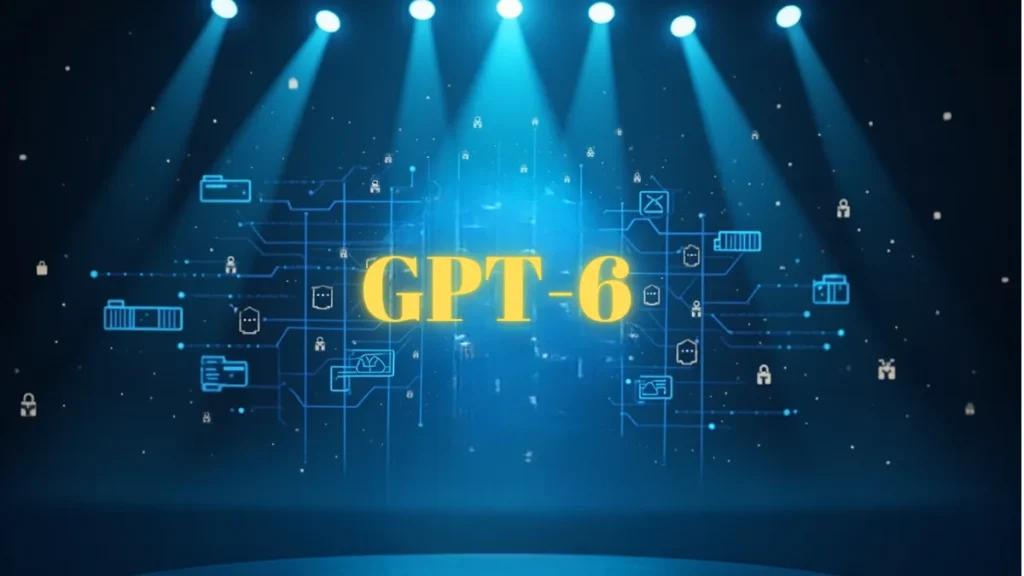OpenAI isn’t slowing down. Just months after the rocky rollout of GPT-5, CEO Sam Altman is already teasing GPT-6 — and this one promises to remember you.
But as AI systems grow more personal, so do the privacy risks. Will users trust a model that knows their quirks, routines, and tastes?
Key Takeaways
- Altman says GPT-6 will feature enhanced memory and personalization.
- Memory could make AI more useful — but raises big privacy questions.
- OpenAI is working with psychologists to measure user well-being.
- Experts warn AI memory could supercharge persuasion and influence.
- GPT-6 may arrive sooner than expected, following GPT-5’s rocky debut.
GPT-6, OpenAI’s next major model, is expected to introduce advanced memory and personalization, CEO Sam Altman revealed. The system would adapt to users’ routines and preferences, making AI feel more “sticky.” However, privacy and encryption gaps remain a top concern as memory could expose sensitive information without stronger safeguards.
Altman Looks Ahead: GPT-6 Already in Sight
OpenAI’s latest release, GPT-5, hasn’t even had time to settle before CEO Sam Altman is signaling what’s next. Speaking with reporters in San Francisco, Altman described GPT-6 as a “different” kind of model, with memory and personalisation at its core.
“People want memory,” Altman said. “People want product features that require us to be able to understand them.”
The remarks, confirmed in CNBC’s report, mark one of the first public hints of OpenAI’s evolving product roadmap. While GPT-5 drew mixed reactions — some called it colder and less helpful than earlier versions — Altman insists GPT-6 will feel warmer, more personal, and more attuned to each individual user.
Why Memory Matters
Memory is more than convenience. If GPT-6 delivers on its promise, it could allow users to train AI that “remembers” not just context from past chats, but also personal tastes, tone preferences, and even quirks.
That kind of stickiness could help OpenAI build a stronger moat in an increasingly competitive market, where users bounce between ChatGPT, Claude, Gemini, and others.
But it’s also fraught with risks. Memory means data — lots of it — and without proper safeguards, that data could be exposed.
“Encryption is table stakes,” wrote one LinkedIn commenter reacting to Altman’s remarks. “Businesses won’t trust AI without strong protections against leaks.”
The Persuasion Question
Privacy isn’t the only worry. Altman confirmed OpenAI has been working with psychologists to study user well-being over time. That research, combined with memory and personalization, could make AI far more persuasive — even manipulative.
Back in 2023, Altman warned on Twitter: “I expect AI to be capable of superhuman persuasion well before it is superhuman at general intelligence.”
Dr. Sherry Turkle, MIT psychologist and author of The Empathy Diaries, has long cautioned that as AI learns more about us, it becomes increasingly skilled at nudging our choices. “When machines know your vulnerabilities and emotional triggers, persuasion isn’t hypothetical — it’s inevitable,” she told MIT News.
A Rocky GPT-5 Rollout
Part of the urgency around GPT-6 comes from GPT-5’s uneven launch. Users complained that the model felt “colder” and less responsive. OpenAI quickly pushed a tone update to make it “warmer.”
Altman admitted missteps: “I like the new one much better,” he told reporters. Still, GPT-6 will arrive faster than the gap between GPT-4 and GPT-5, underscoring OpenAI’s drive to regain momentum.
Why It Matters
Memory and personalization could transform how people use AI. But without encryption, privacy protections, and guardrails against manipulation, GPT-6 risks eroding trust just as quickly as it builds loyalty. Policymakers and researchers will need to move quickly to keep up.
Numbers to Watch
- 128K tokens — current frontier of AI context length.
- 70% — cost savings Lightning AI claims from its new GPU marketplace, reflecting fierce competition in AI infra.
- Over 100M users — estimated global ChatGPT base.
What’s Next
- Watch for OpenAI to announce encryption timelines for memory.
- Expect faster GPT-6 release compared to prior model gaps.
- Policymakers likely to intensify scrutiny on AI persuasion risks.
- Rival models (Anthropic, Google, Mistral) will push similar personalization features.
Conclusion
GPT-6 represents a pivotal shift: from generic AI that answers everyone the same way, to personalized AI that remembers you. That could make AI dramatically more useful — but also more intrusive. Tomorrow’s question isn’t whether AI can recall your preferences, but whether you’ll trust it enough to let it.
